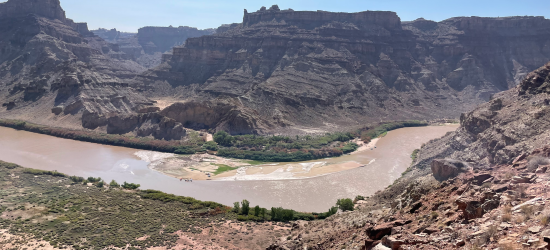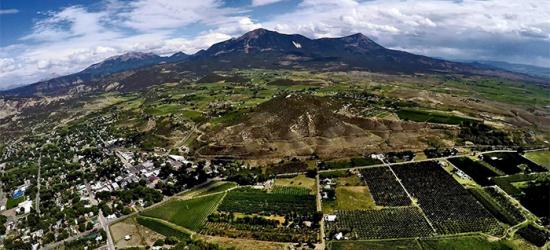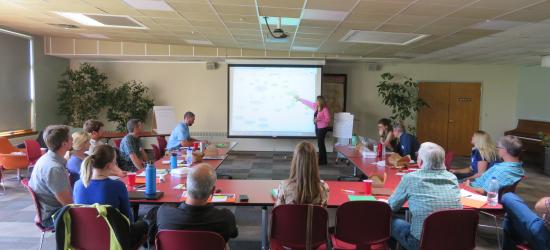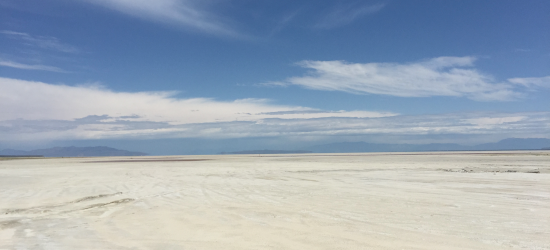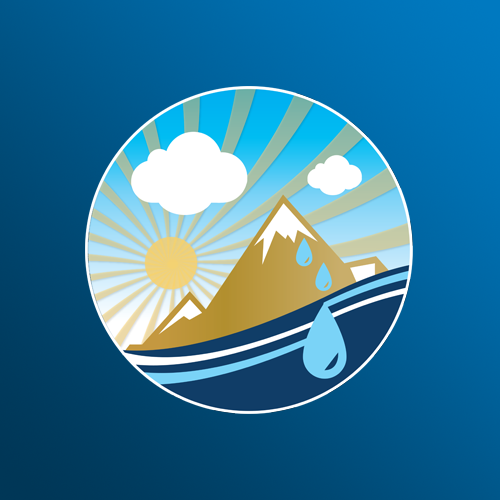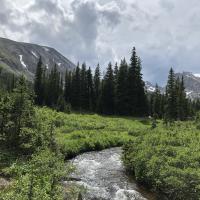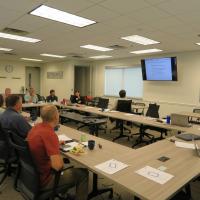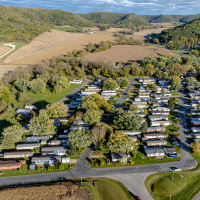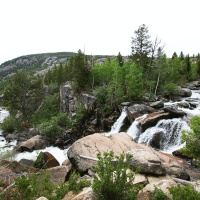Recent Projects
-
Challenges to Building Resilient Water Systems Webinar Series
The Challenges to Building Resilient Water Systems Webinar Series will run monthly from October 2024 through April 2025 and cover topics such as new climate monitoring and prediction tools, temperature and precipitation extremes and post-2026 Colorado River Basin water policy. In winter 2025, WWA will convene an in-person symposium on the Front Range of Colorado and Utah’s Wasatch Front to connect water managers with researchers to share recent research and climate resilience efforts- Colorado
- Utah
- Wyoming
- Building Resilient Water Systems
-
Building cross-scale understanding and collaboration to support wildfire-resilient water systems
[Project 6]
Water system managers in the Intermountain West face enormous challenges navigating unpredictable streamflow forecasts, changing snowpack behavior, and the increasingly dangerous threat of wildfire to both water quality and quantity. In this project, we aim to engage directly with water system managers in an iterative project to (1) increase understanding of their perceptions of water system resilience, (2) identify key components of regional water system resilience across a range of scales from small rural systems to larger urban systems, and (3) convene cross-scale water manager conversations to support peer learning and identify opportunities to collaboratively build equitable and just regional water system resilience. This project stems directly from conversations with the US Forest Service, Northern Water, and Denver Water.- Colorado
- Building Resilient Water Systems
-
Building understanding for water system resilience to changing streamflows
[Project 3]
In this project, we will engage with water providers, tribal representatives, agricultural and other water users, ecological interests, and recreational groups about future snowpack and streamflow conditions, increasing understanding of how they view water system resilience to compound hazards. This continued engagement is essential both to disseminate new research findings and to understand evolving information and planning landscapes.- Colorado
- Utah
- Wyoming
- Building Resilient Water Systems
-
Building Climate Resilience Within Mobile Home Park Communities
In Spring 2024, Western Water Assessment launched a new project focusing on understanding climate risks and building climate resilience within mobile home park communities. Mobile home park residents face unique and disproportionate exposure to climate related hazards, including heat, fires, and floods. Further, mobile home residents often are left out of many climate and disaster related assistance programs, due to the unique housing structure of mobile home parks. Addressing the needs of mobile home park communities is key to building climate resilience and addressing climate justice needs.- Colorado
-
Adapting to Climate Change in Wyoming
Wyoming communities face increasing climate-related risks including wildfire, drought, flooding, and heat waves. This funding competition provided a rare and important opportunity to directly support adaptation and build climate resilience in underserved communities in the state. Applicants provided brief, five-page descriptions of their projects. Proposals were ranked based on their demonstrated community interest, resources and networks in place to support the project, realistic budget and timeline, appropriate and sufficient partners, strong connection to their communities, clarity about how resilience or adaptation would be built through the project, their plan for communicating with WWA and leveraging of WWA resources, their plan for and potential impact of external outreach, and the quality, novelty, and innovation of their ideas. We particularly encouraged proposals from entities and communities who have been historically underserved including Indigenous and small rural communities.- Wyoming
- Building Resilient Communities
Recent Publications
Elkouk, Ahmed, Yadu Pokhrel, Ben Livneh, Elizabeth Payton, Lifeng Luo, Yifan Cheng, Katherine Dagon, et al. 2024. “Toward Understanding Parametric Controls on Runoff Sensitivity to Climate in the Community Land Model: A Case Study Over the Colorado River Headwaters.” Water Resources Research 60 (12): e2024WR037718. https://doi.org/10.1029/2024WR037718
Cravens, A. E., Clifford, K. R., Knapp, C., & Travis, W. R. (2024). The dynamic feasibility of resisting (R), accepting (A), or directing (D) ecological change. Conservation Biology, e14331. https://doi.org/10.1111/cobi.14331
Macpherson, Elizabeth, Rosa I. Cuppari, Aurora Kagawa‐Viviani, Holly Brause, William A. Brewer, William E. Grant, Nicole Herman‐Mercer, et al. 2024. “Setting a Pluralist Agenda for Water Governance: Why Power and Scale Matter.” WIREs Water, May, e1734. https://doi.org/10.1002/wat2.1734
Yao, Fangfang, Ben Livneh, Balaji Rajagopalan, Jida Wang, Kehan Yang, Jean‐François Crétaux, Chao Wang, and J. Toby Minear. 2024. “Leveraging ICESat, ICESat‐2, and Landsat for Global‐Scale, Multi‐Decadal Reconstruction of Lake Water Levels.” Water Resources Research 60 (2): e2023WR035721. https://doi.org/10.1029/2023WR035721
Arens, Seth (2024). A renewed Glen Canyon emerges. In R. Frodeman, E. Brister and L. Propst (Eds.). A Watershed Moment: The American West in the Age of Limits. University of Utah Press. https://uofupress.com/books/a-watershed-moment/
